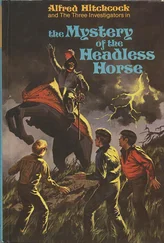Thomas Hughes - The Scouring of the White Horse
Здесь есть возможность читать онлайн «Thomas Hughes - The Scouring of the White Horse» — ознакомительный отрывок электронной книги совершенно бесплатно, а после прочтения отрывка купить полную версию. В некоторых случаях можно слушать аудио, скачать через торрент в формате fb2 и присутствует краткое содержание. Жанр: foreign_prose, на английском языке. Описание произведения, (предисловие) а так же отзывы посетителей доступны на портале библиотеки ЛибКат.
- Название:The Scouring of the White Horse
- Автор:
- Жанр:
- Год:неизвестен
- ISBN:нет данных
- Рейтинг книги:5 / 5. Голосов: 1
-
Избранное:Добавить в избранное
- Отзывы:
-
Ваша оценка:
- 100
- 1
- 2
- 3
- 4
- 5
The Scouring of the White Horse: краткое содержание, описание и аннотация
Предлагаем к чтению аннотацию, описание, краткое содержание или предисловие (зависит от того, что написал сам автор книги «The Scouring of the White Horse»). Если вы не нашли необходимую информацию о книге — напишите в комментариях, мы постараемся отыскать её.
The Scouring of the White Horse — читать онлайн ознакомительный отрывок
Ниже представлен текст книги, разбитый по страницам. Система сохранения места последней прочитанной страницы, позволяет с удобством читать онлайн бесплатно книгу «The Scouring of the White Horse», без необходимости каждый раз заново искать на чём Вы остановились. Поставьте закладку, и сможете в любой момент перейти на страницу, на которой закончили чтение.
Интервал:
Закладка:
In this winter, Hinguar and Hubba seem to have got large reinforcements from over the sea, headed by two other kings, Bægseeg and Halfdene their brother, for in the year 870 we find them no longer surprising a city, and from thence defying their enemies and oppressing the neighbourhood. Now they march openly and fearlessly across Mercia; and, the day of vengeance having come, burst upon East Anglia, and take up their head-quarters at Thetford. And then comes the saddest part of a sad story. King Edmund, being a king like Josiah, who believed in God and ruled in righteousness, was not the man to see the desolation of any part of his people, or to shut himself up in fenced cities while the pagan cavalry rode through East Anglia – so the aforesaid King Edmund gathered his men, and “fought fiercely and manfully against the army. But because the merciful God foreknew that he was to arrive at the crown of martyrdom, he there fell gloriously. Of his passion I would fain insert some particulars into our history, that the sons of men may know and perceive how terrible is Christ the Son of God in the counsels of men, and with what glorious triumph he adorns those whom he tries here under the name of suffering, that the saying may be fulfilled, ‘He is not crowned except he strive lawfully.’ (2 Tim. ii. 5.)” 8 8 See Simeon, A.D. 870.
Such is the lesson which the old monk Simeon, præcentor of the Church of Durham, gets out of the death and martyrdom of King Edmund, and I know not where we are to look for a better. Perhaps it may help us when we think of India 9 9 N. B. This was written in October, 1857.
to remember with Simeon, how terrible is Christ the Son of God in the counsels of men, and with what glorious triumph he adorns those whom he tries here under the name of suffering. For Hinguar and Hubba took the wounded king on the field of battle, and tied him to a tree, because he chose to die sooner than give over his people to them, and there shot him through the body with their arrows. 10 10 Here is Robert of Gloster’s account of the martyrdom: — “So that atte laste to Estangle agen hym come: Ther hii barned and robbede and that fole to grounde slowe; And as wolves among ssep reulych hem to drowe, Seynt Edmond was tho her kyng, and tho he sey that delvol cas That me morthred so that fole, and non amendement n’as, He ches levere to deye hym-sulf, that such soreve to ysey — He dude hym vorth among ys ton, n’olde he nothyng fle. Hii nome hym and scourged hym, and suthe naked hym bounde To a tre, and to hym ssote, and made hym mony a wounde, That the arewe were on hym tho thycke, that no stede n’as byleved. Atte laste hii martred hym, and smyte of ys heved.” Robert of Gloster’s Chronicle , p. 263, apud Thomas Hearne . Ed. 1724.
But his people got the body and buried it at Bradoriesunyrthe, now called St. Edmund’s Bury, or Bury St. Edmunds; 11 11 See Saxon Chronicle, and Huntingdon, A.D. 870.
and many miracles were wrought at his tomb, and he was canonized – at which honour let all Englishmen rejoice, the earth having as much need as ever of many such kings and saints.
And they were rare then as now, and then as now men went their own way, and not God’s way, and cut out their own work instead of taking his. For “when King Edmund was slain, his brother Edwold, dreading the pleasures of the world, and seeing that a hard lot had fallen on himself and his brother, retired to the monastery of Carnelia in Dorsetshire, near a clear well which St. Augustine had formerly brought out of the earth by prayer, to baptize the people in, and there he led a hermit’s life on only bread and water.” 12 12 See Brompton, A.D. 870.
Yes! and no doubt thought himself righteous and despised others – and left the kingdom which God had given him to the Pagans, who “subdued all the land and destroyed all the ministers they came to,” which Edmund his brother had built – “and that same time they came to Medeshamstede, and burned and beat it down, slew abbot and monks, and all that place which before was full rich, they reduced to nothing,” 13 13 See Sax Chron., A.D. 870.
while Edwold, who should have been there with the remnant of the East Angles, to make his last stand, like a true shepherd of his people, was eating his bread and drinking his water in peace, by a clear well near the monastery of Carnelia in Dorsetshire.
And now the Pagan kings, “with a new army, very great, like a flowing river which carries all along with it,” 14 14 See Huntingdon, A.D. 871.
having doubtless been reinforced again from over the sea, where the story of their victories had spread far and wide, were looking about for some new field for plunder and murder. The whole north and east of England was a desolate wilderness behind them; London was in ruins, and Kent had been harried over and over again by their brethren the sea-kings. But some thirty miles up the Thames was a fair kingdom, stretching far away west, down to the distant sea. This was Wessex, the kingdom of the West Angles, over which Æthelred, the brother of Alfred, was now ruling, and entering on the sixth year of his reign. The kingdom had had peace for ten years, and was full of royal burgs, and rich pastures, with cattle and horses, and sheep. Perhaps Hinguar and Hubba remembered the leaguer of Nottingham three years before, and how the West Angles, with their king and his brother, had hemmed them in and watched them there through a long summer.
In the early years of their inroad, the Pagans would not have dared to brave a united people with Æthelred for king; but they had now grown bold from success, and were in numbers so great that “by reason thereof they could not advance together, but went by different roads.” So in an early month of the year 871, with their usual swiftness, they marched up the Thames valley and seized on Reading, a royal burg, and the then easternmost city of note in Wessex. Reading is situate on the south bank of the Thames and on the north bank of the Kennet, at the confluence of the two rivers; and, while part of the Pagan host made a rampart between the rivers, to protect their camp and the town which they had taken, a large force, on the third day after their arrival, began scouring the country for plunder, under two of their earls.
But the men of Wessex had increased and multiplied as well as their cattle, and Æthelwulf, Alderman of Berkshire, was a man “who raged as a lion in battle.” So Æthelwulf, with what men he could get together, fought with the two earls at Englefield, though he had but a small band of Christians with him. But he cheered his men, saying to them, “though they attack us with the advantage of more men we may despise them, for our commander Christ, is braver than they.” 15 15 See Simeon, A.D. 871.
Whereupon the men of Wessex buckled to their work under the oaks of Englefield Chase (afterwards beloved by the great Queen Bess), and there discomfited the pagans very sore, and slew one of the two earls. In one of the old chroniclers, there are a few lines which may partly account for Æthelwulf’s victory; “their two consuls,” says Æthelwerd, “forgetting that they were not on board their fleet, rode proudly through fields and meadows on horseback, which nature had denied them;” possibly therefore these were the new comers, who had just joined the Pagan army and were not used to horses or landfighting.
Within the next three days King Æthelred and his brother Alfred came up from the west, each leading a strong band of West Saxon warriors, and joined Æthelwulf; and on the fourth day they attacked the Pagans at Reading. Those who were outside the rampart they cut to pieces, and at first had the vantage; but the Pagans came out with all their forces, and after great slaughter had been made on either hand, and the brave Æthelwulf had been slain, “the Pagans had possession of the place of death.” 16 16 See Saxon Chronicle, A.D. 871.
Thus the chronicle states it; probably the men of Wessex were grievously beaten, and went back with their king, in confusion, along the chalk hills to the other end of Berkshire, pursued by Bægseeg and Halfdene, the two lately arrived Danish kings, with the strength of the Pagan host. I suppose that Hinguar and Hubba stayed at Reading, to hold the place of safety; for neither of them were at Ashdown.
Интервал:
Закладка:
Похожие книги на «The Scouring of the White Horse»
Представляем Вашему вниманию похожие книги на «The Scouring of the White Horse» списком для выбора. Мы отобрали схожую по названию и смыслу литературу в надежде предоставить читателям больше вариантов отыскать новые, интересные, ещё непрочитанные произведения.
Обсуждение, отзывы о книге «The Scouring of the White Horse» и просто собственные мнения читателей. Оставьте ваши комментарии, напишите, что Вы думаете о произведении, его смысле или главных героях. Укажите что конкретно понравилось, а что нет, и почему Вы так считаете.












